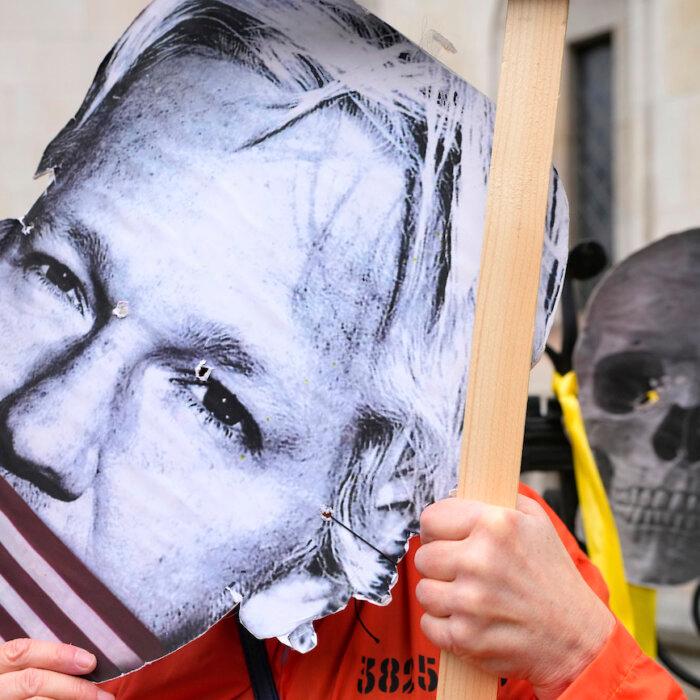WikiLeaks founder Julian Assange has been granted a temporary reprieve by the High Court in London to appeal his extradition as U.S. authorities must give assurances that he will not face the death penalty.
On Tuesday, Mr. Assange found that he faces a further wait to discover whether his final bid to appeal over his extradition can go ahead.
In a judgment on Tuesday, Dame Victoria Sharp and Mr. Justice Johnson dismissed most of Mr. Assange’s legal arguments, but said that unless assurances are given by the United States he would be able to bring an appeal on three grounds.
Reacting to the news on Tuesday, WikiLeaks posted on social media platform X that Mr. Assange may still be extradited.
“Julian Assange may still be extradited to the US in three weeks if U.S Government provides ‘assurances,’ previously deemed by Amnesty as ‘inherently unreliable’ - including that he will not be prejudiced at trial by reason of his nationality and not receive the death penalty,” WikiLeaks wrote.
Mr. Assange’s family and supporters say his physical and mental health have suffered during more than a decade of legal battles, including seven years in self-exile in the Ecuadorian Embassy in London and the last five years in the high-security prison Belmarsh on the outskirts of London.
At the start of Mr. Assange’s bid last month, Mark Summers, KC argued the United States’ prosecution would be retribution for his political opinions, meaning it would be unlawful to extradite him under UK law.
The development could be his last legal roll of the dice in Britain. His wife and supporters say the Australian national faces 175 years in prison if he is extradited.
Assurances
In a 66-page ruling on Tuesday, Dame Victoria said: “Before making a final decision on the application for leave to appeal, we will give the respondent an opportunity to give assurances.“If assurances are not given then we will grant leave to appeal without a further hearing.
“If assurances are given then we will give the parties an opportunity to make further submissions before we make a final decision on the application for leave to appeal.”

Dame Victoria said any assurances from the United States would need to include “that the applicant [Mr. Assange] is permitted to rely on the First Amendment, that the applicant is not prejudiced at trial, including sentence, by reason of his nationality, that he is afforded the same First Amendment protections as a United States citizen, and that the death penalty is not imposed.”
She dismissed Mr. Assange’s argument that his extradition is requested by the United States over his political views, saying: “The primary complaint the applicant now makes is that the judge failed to address an argument that he had exposed criminal activity by the respondent, and that that exposure amounted to a protected political act.
“The first thing to say about this argument is that the judge accepted, as we have already said, that the applicant’s motives were political.
“The point of substance, however, is that the applicant’s argument conflates his motive for his conduct with the respondent’s purpose in seeking his extradition.
“The two are distinct.
“We are content, like the judge, to assume that the applicant acted out of political conviction, and that his activities exposed state involvement in serious crimes.
‘Canary in the Coal Mine’
In February, WikiLeaks Editor-in-Chief Kristinn Hrafnsson said the extradition would set a precedent that has “dark and serious implications for press freedom all around the world.”The Icelandic investigative journalist said: “We are seeing a critical attack on press freedom worldwide. It is like a disease—an anti-press pandemic creeping up on us that has been incrementally taking shape over the years.
“And in that sense Julian Assange has been canary in the coal mine.”







